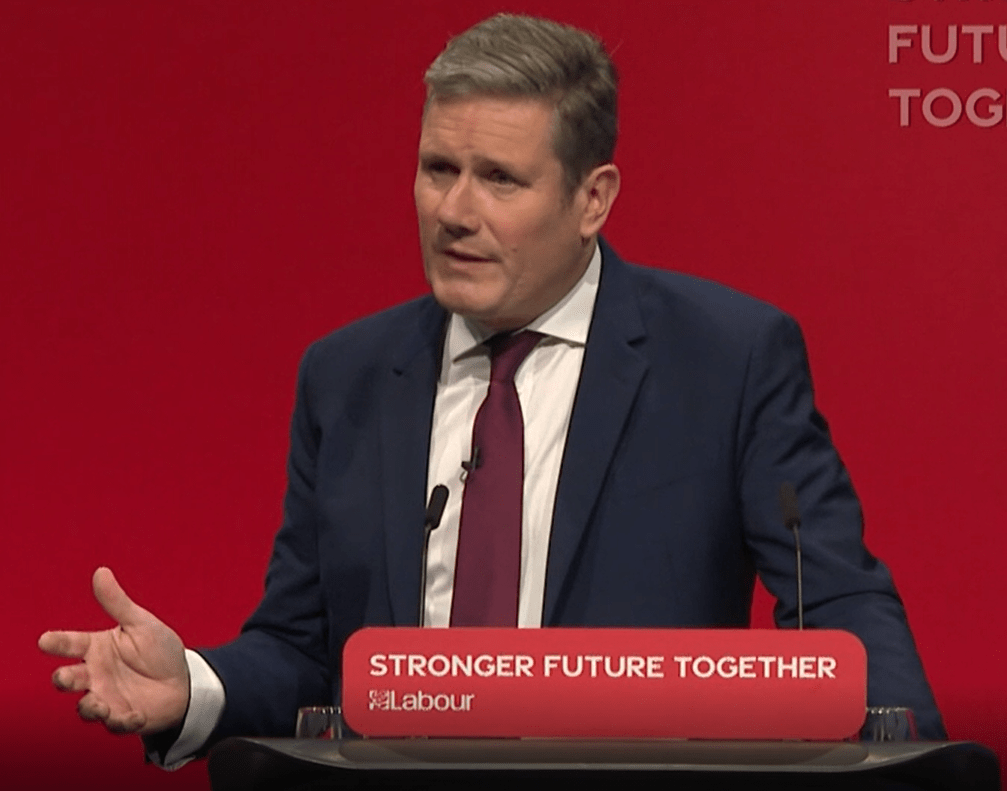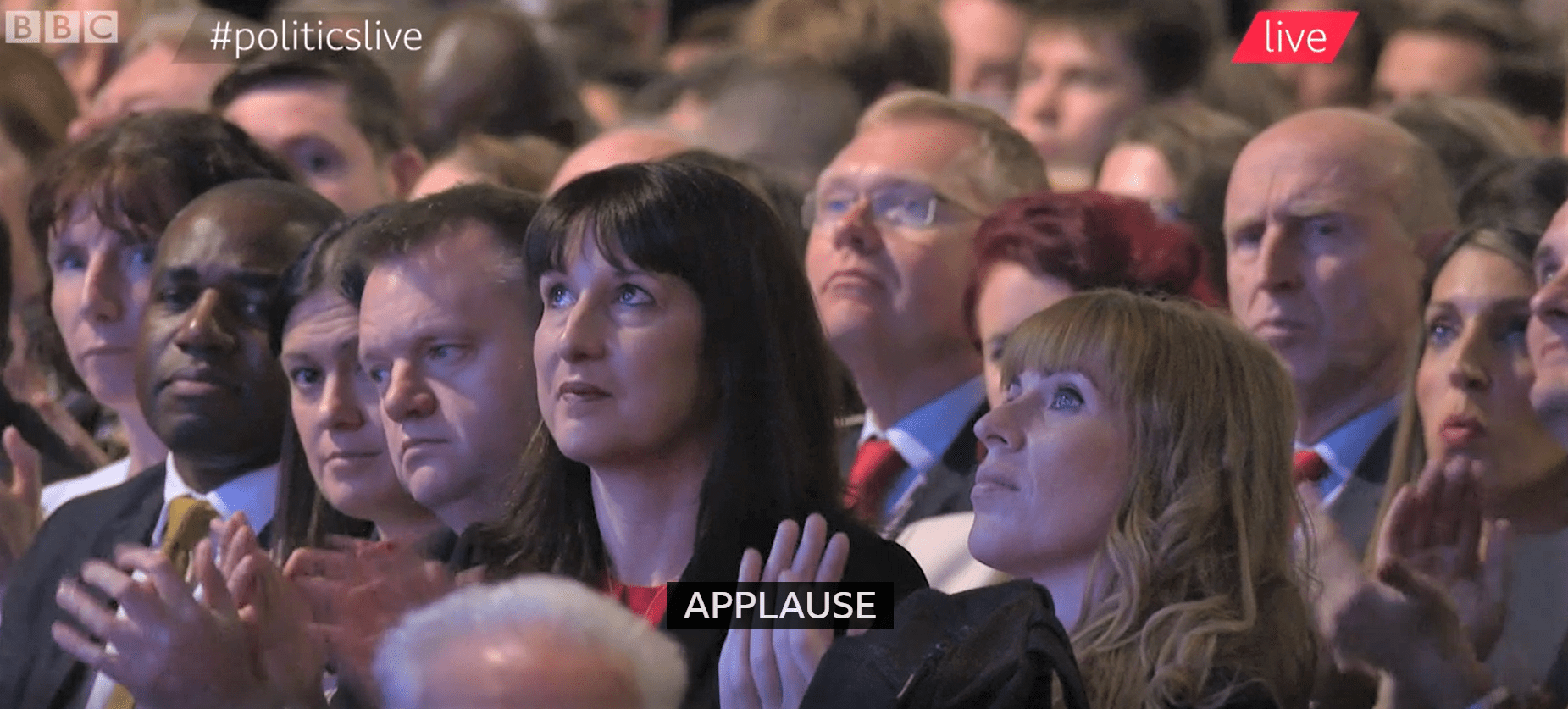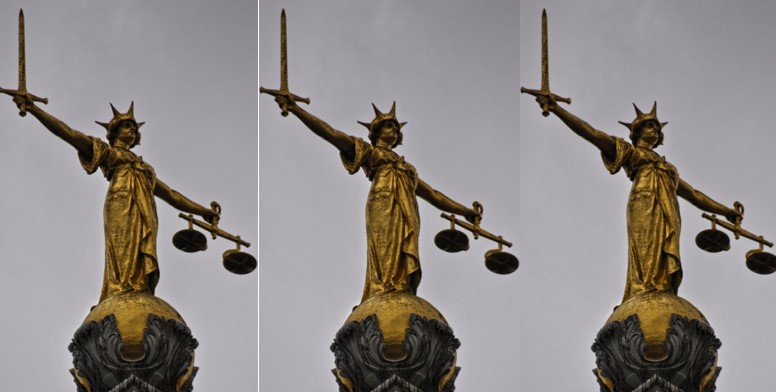The only issue of any real importance in the Wednesday session of Labour conference was the leader’s make or break speech. In the end, he sat down to loud applause and a standing ovation, but outside of the bubble of conference a different world beckons.
There is little point in giving the detail of Keir Starmer’s first conference speech as leader – it will be picked over in detail in the newspapers tomorrow. Suffice to say that socialism did not feature in it at all and apart from a reference to the previous Labour government, there was very little, if anything, that could not have been said by a leader of the Liberal-Democrats or the so-called ‘one-nation’ wing of the Tory Party.
The right wing of the party had mobilised and concentrated all of their forces on Brighton for the speech, with most of the Parliamentary Labour Party, in the reserved front rows, leading the ovations. This, of course, featured in the live TV stream (above). There were delegates who did not applaud, who sat on their hands instead, and there was even a smattering of heckling at first. But overall, any left delegates in the hall may have felt a little isolated by the well stage-managed acclaim that was given to Starmer.

But on the other hand, it is outside the conference that matters, and here, in the real world, it is the left of the party that is in tune with the day-to-day problems that are facing working class people. While Starmer sticks to his call for a statutory minimum wage of £10 an hour, workers and their unions are increasingly demanding a living wage of £15 an hour. And for the record, £15 may not be Starmer’s policy, but it is now officially, Labour policy.
The overarching message: “no commitment to anything we can’t pay for”
Starmer’s speech ranged over just about every new ‘initiative’ announced by various Shadow Ministers who had spoken in the conference, including Rachel Reeves’ commitment to spending £28bn every year on greening the economy. But amidst all the promises, on education, welfare, health and social care, the over-arching message was also spelled out to the bankers, to business and to the Media and that is that Labour “would not commit to anything we can’t pay for”.
Left Horizons doesn’t often quote from Private Eye. But there is an interesting little story in the latest issue about a fringe event at Labour conference, and it is worth quoting at length.
“…Starmer’s internal reforms have one happy side-effect: with the waning of left-wing members’ influence, shadow ministers can resume regular meetings with big business. So last Sunday shadow business minister Seema Malhotra addressed a fringe meeting in Brighton’s Metropole Hotel for “SME Labour” (small and medium enterprises), where she was joined on the platform by Deliveroo’s chief lobbyist Giles Derrington.
“Malhotra praised Deliveroo, which with £900m revenues is very much not an SME. It is, however, a non-union, low-pay employer. When the meeting opened to questions, two Labour councillors both asked if Deliveroo’s “dark kitchens” (hidden away delivery-only kitchens) didn’t actually hurt small businesses such as takeaways. The chair immediately announced that the meeting had run out of tie and they must take this up with Deliveroo’s lobbyist separately.
“Other shadow ministers were set for conference meetings with corporations including arms firms Raytheon and BAE Systems, Google, and lobbyists for the City and for the energy firms that Starmer does not now want to nationalize. Labour may be far from power, but the door to corporate lobbying is wide open once again.”
Big business will call the shots with this Labour leadership
There are two points to be made about this report, assuming it is true – and there is no reason to doubt it. The first is that it gives a clue as to why the right wing of the Labour Party would not mind losing members, indeed Labour’s entire membership, if it was necessary to purge the party of its radicalism. It is because they would seek to make up the financial shortfall from business donations.

But the second, and most important point, is that it gives a clue as to who will be calling the shots if and when Labour comes back to power. The Tories are so abysmally bad, and indeed with the prospect of everything getting far worse, that Labour is creeping up in the opinion polls.
Because of the radical-sounding half-commitments offered, because of the collapsing support for the Tories – and despite our leader – it is entirely possible that Labour will win back enough ground to win a general election. But in the event that they do, it will be the pressure of British capitalism, desperate to maintain profits at all costs, that will dictate to the government and not the other way around.
Most of the delegates cheering Keir Starmer today – as opposed to right-wing Labour MPs who were being paid to do it – were doing it because they genuinely yearn for a different government to the awful one we have now. There is nothing wrong with that aspiration. But when Labour is elected next, there will be a titanic collision between what working class people (and most conference delegates, and composite motions) think needs doing and what a business-friendly Starmer/Reeves government is prepared to do.
It is as well to remember the keynote slogan of the Corbyn leadership – “For the Many, not the Few”. Because Labour under Keir Starmer is on the trajectory for a Labour government that would exactly reverse it: “For the Few not the Many.”
We have commented on the fact that at this conference the right wing have won all of the constitutional and organisational victories, but on the political questions the left have swept the board: on £15 an hour, on Israel/Palestine and on many more.
That is significant, not for the effect it has on Starmer and Co, because it has no effect at all. But it is important for the arguments that will happen in the future and for those battles that will come it is still worth staying in the Labour Party and fighting our corner as long as we can. The tide of history runs strongly in our favour, not theirs.



